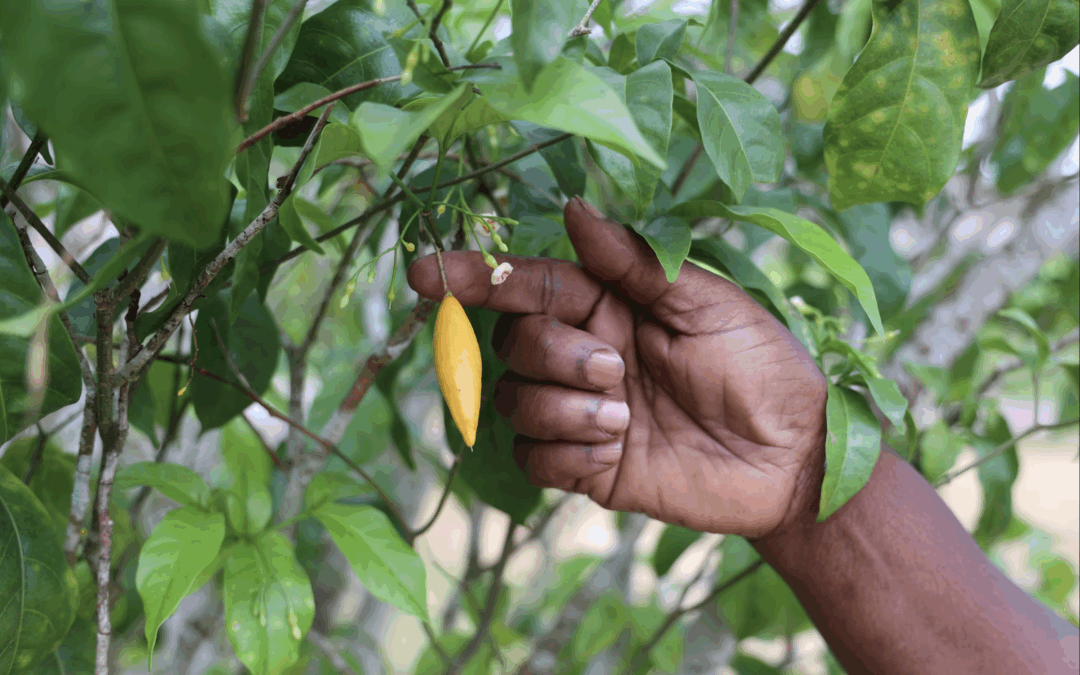The Enigmatic Alkaloid
Ibogaine, a naturally occurring psychoactive compound extracted from the root bark of the Tabernanthe iboga shrub native to West Africa, has garnered attention for its purported ability to interrupt substance use disorders, particularly opioid addiction. Traditional use of ibogaine is deeply rooted in the spiritual practices of the Bwiti religion in Gabon, where it is employed in initiation rites and healing ceremonies .(1)(2)
In the 1960s, anecdotal reports began to surface about ibogaine’s potential in alleviating withdrawal symptoms and reducing cravings in individuals with opioid dependence. Despite its Schedule I status in the United States, which denotes a high potential for abuse and no accepted medical use, ibogaine continues to be explored in other countries for its therapeutic potential.(3)
Pharmacological Mechanisms: A Complex Interaction
Ibogaine’s pharmacology is multifaceted, interacting with various neurotransmitter systems. It acts on opioid receptors, serotonin transporters, and NMDA receptors, among others . Notably, ibogaine is metabolized into noribogaine, which has a longer half-life and is believed to contribute significantly to the anti-addictive effects by modulating dopamine and serotonin pathways .(4)(5)
Studies have shown that ibogaine administration can alter the expression of neurotrophic factors like GDNF and BDNF in brain regions associated with addiction, suggesting a role in neural plasticity and recovery .(6)
Clinical Applications: Addiction and Beyond
Clinical observations and limited studies have indicated that ibogaine may reduce withdrawal symptoms and cravings in individuals with opioid dependence. A study conducted in New Zealand reported that a single ibogaine treatment led to opioid cessation or sustained reduced use over 12 months .(7)(8)
Beyond addiction, ibogaine has been explored for its potential in treating mood disorders and PTSD. A study by Stanford Medicine found that ibogaine administration, combined with magnesium to mitigate cardiac risks, resulted in improvements in depression, anxiety, and functioning among veterans with traumatic brain injuries .(9)
Safety Concerns: Cardiotoxicity and Legal Status
Despite its potential benefits, ibogaine is associated with significant safety concerns, particularly cardiotoxicity. Cases of cardiac arrest and fatal arrhythmias have been reported, often linked to ibogaine’s effect on heart rhythm and its interaction with other substances.(10)
Due to these risks, ibogaine remains a Schedule I substance in the United States, making it illegal to manufacture, possess, or distribute. However, some countries like Mexico, New Zealand, and Brazil have more permissive regulations, allowing for clinical use under certain conditions.(11)(12)
Traditional and Cultural Significance
In the Bwiti tradition of Gabon, ibogaine is not merely a substance but a sacrament used in spiritual ceremonies to facilitate personal insight and healing. These rituals are deeply symbolic and are considered essential for community cohesion and individual transformation .
The globalization of ibogaine use raises ethical considerations regarding cultural appropriation and the sustainability of Tabernanthe iboga harvesting. Efforts are being made to cultivate ibogaine-producing plants outside of Africa to reduce pressure on wild populations and to respect the cultural heritage associated with its traditional use.
Future Directions: Research and Development
Ongoing research aims to develop safer analogs of ibogaine that retain its therapeutic properties without the associated risks. One such compound, 18-MC (18-methoxycoronaridine), has shown promise in preclinical studies for reducing drug-seeking behavior without significant cardiotoxicity.(13)
Additionally, clinical trials are being conducted to better understand ibogaine’s efficacy and safety profile. Organizations like ICEERS have initiated Phase II trials to explore ibogaine’s potential in treating opioid dependence within a framework that integrates medical supervision and harm reduction strategies.(14)
A Substance of Contrasts
Ibogaine presents a paradox: a substance with the potential to disrupt addiction and facilitate profound psychological healing, yet accompanied by serious health risks and legal challenges. Its complex pharmacology and cultural significance underscore the need for careful, ethically informed research and clinical practice.
As the global community continues to grapple with addiction and mental health crises, ibogaine’s story serves as a compelling example of the possibilities and perils inherent in psychedelic therapies.


Recent Comments